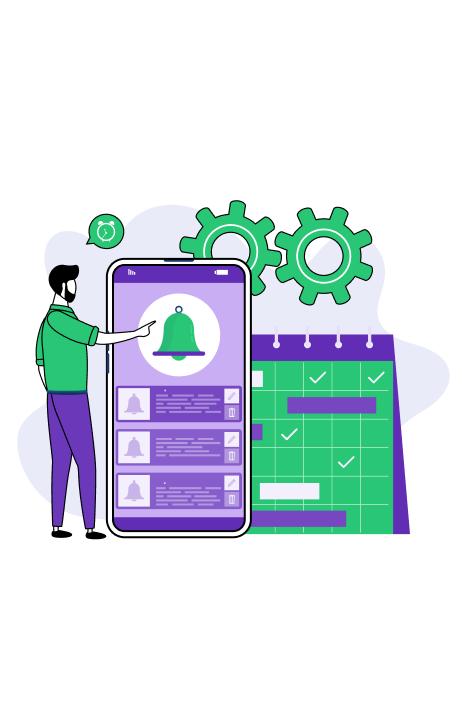
Taking control of your online presence
In today’s world, it’s common to share our thoughts, pictures, and videos on social media without fully considering the long-term consequences of our digital footprint. However, this can be dangerous as our online presence can have a significant impact on our personal and professional lives.
For example, a video or post that was shared randomly can quickly go viral and become associated with us, potentially leading to embarrassment and damaging our reputation. Similarly, a poorly managed social media profile can put off potential employers from offering us job opportunities, despite having a strong CV, cover letter, and portfolio.
That’s why it’s essential to take control of our online presence by regularly reviewing and updating our social media profiles. We should consider the type of content we share, who we connect with, and the privacy settings we have in place. By doing so, we can better manage our digital footprint and ensure that our online presence accurately reflects who we are and what we stand for.
Searching your digital footprints
Your online presence is everything you post publicly on any website. So, it’s good to check your social presence by searching it online. Here are a few ways to explore your digital footprints:
1. Google search
One effective way to explore your digital footprints is to Google your name with double quotes like this: “[Your name]”. Search for your social profiles like Facebook, Twitter, LinkedIn, and Pinterest on the first five pages of Google. Try to search your images on Google images. If you are unable to find anything on the first five pages, try exploring your data by your email address, your name, and your city or country. Sometimes it’s difficult to manage other’s activities like tagging or mentioning your name on social media. However, there are some options, like hiding posts or un-tagging yourself from their posts, that you do to control your social presence.
2. Digital reports
Search for any incident where you posted anything biased, and someone reported you. It could be anything from a single unpleasant comment or anything as significant as a police report. Look for any charge filed against you. It’s important to be aware of the potential consequences of the content you post online. Even seemingly harmless comments or actions could be reported or shared, potentially damaging your reputation or career prospects.
3. Look at your old post or websites
Employers and organizations often conduct online background checks on potential employees, and any evidence of inappropriate behavior could lead to a loss of trust or damage to their reputation. Check your old posts or websites you are no longer using and see if you can keep a check on your past social interactions.
Tips for managing your social media presence
Since we spend a lot of our time on social media, the chances of posting useless information are very high. Here are some quick tips for managing your social media presence.
- Start controlling the content you have posted on your social media accounts. Make all your post friends only and add friends you know personally only.
- After your profiles, start searching for your presence on your friend’s profile, like tagging information, and so on. Ensure your tagging privacy is under your control, and your friends cannot tag you in inappropriate content.
- If you cannot untag yourself from any post, ask your friends to untag you from their posts.
- Keep everyone from your company or professional career from your friend list. It’s always professional to add them on LinkedIn. Put a professional head-to-shoulders shot on your LinkedIn profile picture.
- Use the most recent image so that the employers may not misunderstand you with any other person with your exact name.
- Use different email addresses for your personal and business activities so that if an employer searches you from your business email, they can’t find anything.
- Delete all your old accounts, as you might have put a lot of embarrassing stuff on your social media account out of immaturity that your employers and others should not know.
- Delete your activities from any message or forum you are no longer using.
- If you have any inappropriate record or are no longer into that activity, maybe any criminal case, then you may request google to remove it.
- You need to provide legal evidence, like documents of your innocence, to remove your data from Google. Google sometimes marks it as “data is no longer relevant” if they can’t delete it for some reason.
Conclusion
One of the most effective ways to control your digital presence is to avoid posting anything that is incriminating, unprofessional, or that could be taken out of context. While this may mean that your social media presence appears more “dull,” it’s important to remember that your online reputation can have a significant impact on your personal and professional life.
By taking control of your online presence and making it more professional, you can better manage your reputation and ensure that potential employers or other important contacts see you in a positive light. This may involve reviewing and updating your social media profiles, avoiding controversial topics or offensive language, and being mindful of the type of content you share online.